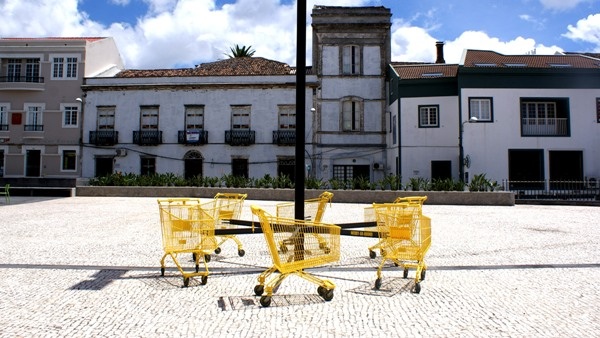
What keeps you awake at night? Is it the Fear Of Missing Out?
I read three things recently which deftly, and each in their own way, brought the FOMO concept to life for me.
Let’s start with the amusing Guardian piece: http://www.theguardian.com/commentisfree/2013/oct/05/100-top-things-dont-need – neatly drawing attention to a daft notion we have become subjected to, which is that there are certain things “we MUST do before we die”.
Usually these things come in the form of a handy list, often of 100 items. There is no end to the categorization which has been used in this vein of commentary – 100 movies we MUST watch, songs we MUST listen to, places we MUST visit.
One lovely reflection halfway through Richard Osman’s article is that back in the 70’s “we weren’t told what we had to do all the time, mainly because there were only about eight things you actually could do, so everyone simply did all of them as a matter of course”.
This sentiment made me wistful for living again in those pre-technology times, and in fact made me crave the fantasy of having been born a little sooner (I always did think that being at a live Jimi Hendrix concert, and not having to instagram, check emails, tweet or whatsapp throughout the proceedings, would have been quite special. Although, mainly, I would have loved to have gone to a Hendrix concert.)
The Fear Of Missing Out permeates through these “100 MUST Do” lists.
Carpe diem, One Life, Blah.
Wind back up to the bright yellow shopping trolley photo above, and you’ll find a fab art installation in Portugal by Nuno Pimenta, designed to highlight the fact that consumerism is a merry-go-round in that “it doesn’t take us anywhere…or in the best case scenario to the starting point.”
Consumption represents shades of a FOMO concept. It’s not quite what the new terminology was describing (in my mind) but it is of the same family of philosophy, connected as it is by the compulsions of us all to own, experience and define ourselves by the things we buy, wear, eat, drink, smoke, listen to, watch, read, blog about.
Not so much a fear of missing out on a shopping bargain, it’s more to do with how our external environment can drive identity.
And so to Joshua Ferris, and The Breeze – http://www.newyorker.com/fiction/features/2013/09/30/130930fi_fiction_ferris – you will need to subscribe to The New Yorker to read the full story (I was given a hard copy by a colleague) but I would commend it to you as a truly engaging piece of short fiction, that beautifully pulls out some of the intangible flaws that exist between couples – “the haltings and blinders of an entwined life” – in a series of make-believe scenarios which play out on the evening of the first day of Spring.
And, as the author relates in a separate interview, it is all about FOMO. In the case of The Breeze, a woman’s fear of missing out on something she cannot quite define, “forever residing on the other side of things….bickering over nothing, the all-consuming nothing of what to do.”
I read this coming off a plane, and was so taken by it, that I stood for five minutes mesmerized until the final lines, as my baggage lumbered around the carousel waiting for me. The narrative here is FOMO in a most damaging and profound form.
Whilst not all the scenarios which unfold in Ferris’ tale are about relationship break-up, his accuracy at describing just how pendulum swinging the emotional connections between two people “in love” can shift, so impromptu, and with such deep-rooted connotations, is as enthralling as much as it is sobering.
From the Fear Of Missing Out on eating a tastier dish on a restaurant menu, to a Fear that you are not living your life “in the moment” and “seizing the day,” all the way through to how FOMO manifests itself in the form of the desperate wranglings of two people “sharing a bed, but feeling worlds apart” (to quote Caitlin Moran) I think we can, and we should, try to only accept the FOMO moments in life for what they are – which is ultimately the fact that they are only as powerful as we let them be.
To make that choice and acceptance is, perhaps, one step towards a more empowered state of mind.

Great post.
A similar thought is, “What is the best way to predict whether a person will be happy in the future?” Is it their career, their relationship, how wealthy they are?
Much more reliable is whether they have been happy in the past. Do we concentrate on what has made us happy or what we have missed out on?
I suppose the difficult thing is finding the balance between ambition that makes us happy and ambition that does the opposite….
Great post.
A similar thought is, “What is the best way to predict whether a person will be happy in the future?” Is it their career, their relationship, how wealthy they are?
Much more reliable is whether they have been happy in the past. Do we concentrate on what has made us happy or what we have missed out on?
I suppose the difficult thing is finding the balance between ambition that makes us happy and ambition that does the opposite….
…To be continued over a Vietnamese KFC bucket in 50 days, and counting…
Can’t wait Mr B!